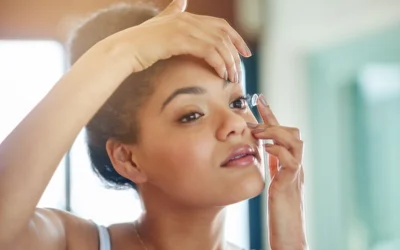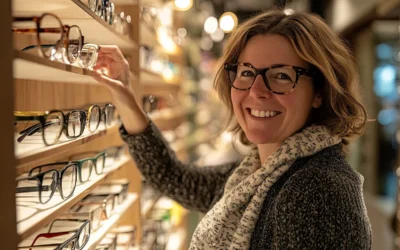Myopia, or nearsightedness, is becoming increasingly common in children, raising concerns for many parents. If your child has been diagnosed with myopia, you may wonder if it’s something to be worried about and how it could affect their vision in the long run. At Clarin Eye Care Center in Palmetto Bay, Florida, we understand these concerns and are here to provide answers.
What is myopia?
Myopia is a vision problem where distant objects appear blurry while close-up objects remain clear. It occurs when the eyeball is too long, or the cornea is too curved, so light entering the eye focuses in front of the retina rather than directly on it.
In recent years, myopia rates in children have increased, partly due to lifestyle changes such as increased screen time and less outdoor activity. Genetics also plays a key role—if one or both parents have myopia, their children are more likely to develop it as well.
Should I be worried about my child’s myopia?
While myopia can be corrected with glasses or contact lenses, it’s important to understand the potential risks of progressive myopia. If myopia worsens significantly over time, it can lead to high myopia, increasing the risk of more serious eye conditions later in life, including:
- Retinal detachment
- Glaucoma
- Cataracts
- Myopic maculopathy (degenerative changes in the retina)
These conditions can affect vision permanently, which is why early intervention and management are key to protecting your child’s long-term eye health.
How can I slow down my child’s myopia?
Fortunately, there are effective strategies for managing and slowing the progression of myopia. At Clarin Eye Care Center, we offer several treatment options that can help reduce the rate at which myopia worsens:
MiSight® 1 day contact lenses
MiSight® lenses are FDA-approved contact lenses designed specifically for myopia control. They focus incoming light in a way that helps slow eye growth and, in turn, slows myopia progression.
Orthokeratology (ortho-k)
Ortho-k lenses are worn overnight and gently reshape the cornea while your child sleeps. In the morning, they can enjoy clear vision without needing glasses or contact lenses during the day. This treatment has also been shown to slow the progression of myopia.
Atropine eye drops
Low-dose atropine eye drops can slow myopia progression. Although they don’t correct vision directly, they help to slow the growth of the eyeball and can be used alongside glasses or contacts for vision correction.
Time outdoors
Encouraging your child to spend more time outside in natural light has been shown to reduce the risk of developing myopia and may also help slow its progression. Limiting screen time and close-up work can also be beneficial.
Why early intervention is important
The earlier myopia is diagnosed, the more effective treatment can be in slowing its progression. Regular eye exams are crucial for detecting myopia early on, especially since children may not always recognize or communicate vision problems.
At Clarin Eye Care Center, we recommend annual eye exams for children, even if they don’t show signs of vision problems. Myopia can worsen rapidly during childhood and adolescence, so consistent monitoring allows us to adjust treatment as needed to prevent significant vision issues later in life.
Protect your child’s vision with proven solutions
If your child has myopia, it’s understandable to be concerned, but there are effective ways to manage and slow its progression. At Clarin Eye Care Center, we offer myopia management in Palmetto Bay to help protect your child’s vision and reduce the risk of future eye health complications.
Schedule an appointment today to discuss your child’s myopia and explore the best options for managing it.



